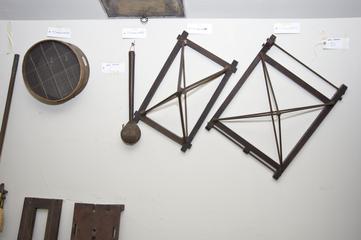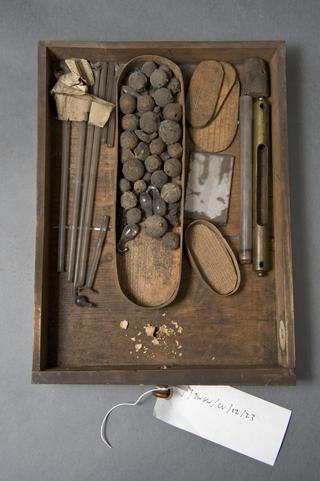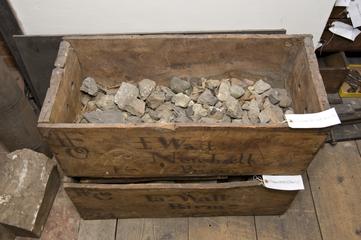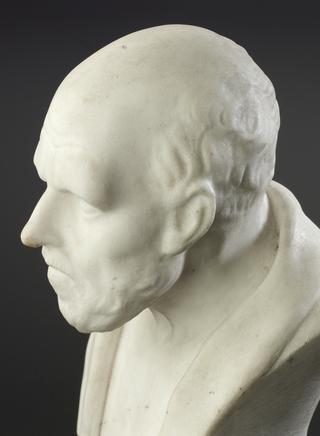
Short piece of ebony, partly sunk to fit in back of one of the long pieces. violin fingerboards made by James Watt, Glasgow, Scotland, to the design of Charles Clagget, 1758-1769.
This item is part of the contents of the workshop that Scottish engineer James Watt developed at his home, Heathfield, at Handsworth, Birmingham. Although Watt is best known for his work on the steam engine, his workshop contains a wide variety of objects from many different projects, from chemistry to sculpture-copying.
The description of the item was written by Edward Collins, the land agent responsible for Heathfield when the workshop was given to the Science Museum in 1924. Collins could not always identify what he was looking at, but always described what he saw clearly. This has allowed his descriptions to form the basis of subsequent research.
Only these relics of James Watt’s violin making survive in his workshop. The fingerboards are Charles Clagget’s specially shaped design to help novices to learn where to place their fingers - Clagget commissioned Watt to make these as a trial. The fingerboard comprises two interlocking parts, with one capable of being raised up in a way the frets on a guitar are, helping to guide the novice violinist's fingers.
These pieces of ebony have been precisely cut with the intention of fitting them to the hollow backs of items 1924-792/1405. Each tapers in length and has a curved face, although few have been so shaped that they do actually fit and none has been found to fit well – though the dimensions of both sets of components may have been affected by drying out. When one each of /1405 and /1406 is placed together, the pair of pieces is supposed to present the unbroken curved and tapering surface of a conventional violin fingerboard. In reality, the parts cannot be fitted together well, partly because they are unfinished, partly because they are poorly made, and partly, it appears, because the wood has shrunk. These parts represent an essay in the construction of Clagget’s improved violin finger-boards, patent no. 1140 of 1776.
Details
- Category:
- James Watt's Garret Workshop
- Object Number:
- 1924-792/1406/6
- Materials:
- ebony (wood)
- type:
- component - object
- credit:
- Major J.M. Gibson-Watt



